- News
- Reviews
- Bikes
- Accessories
- Accessories - misc
- Computer mounts
- Bags
- Bar ends
- Bike bags & cases
- Bottle cages
- Bottles
- Cameras
- Car racks
- Child seats
- Computers
- Glasses
- GPS units
- Helmets
- Lights - front
- Lights - rear
- Lights - sets
- Locks
- Mirrors
- Mudguards
- Racks
- Pumps & CO2 inflators
- Puncture kits
- Reflectives
- Smart watches
- Stands and racks
- Trailers
- Clothing
- Components
- Bar tape & grips
- Bottom brackets
- Brake & gear cables
- Brake & STI levers
- Brake pads & spares
- Brakes
- Cassettes & freewheels
- Chains
- Chainsets & chainrings
- Derailleurs - front
- Derailleurs - rear
- Forks
- Gear levers & shifters
- Groupsets
- Handlebars & extensions
- Headsets
- Hubs
- Inner tubes
- Pedals
- Quick releases & skewers
- Saddles
- Seatposts
- Stems
- Wheels
- Tyres
- Health, fitness and nutrition
- Tools and workshop
- Miscellaneous
- Buyers Guides
- Features
- Forum
- Recommends
- Podcast
review
£1,999.00
VERDICT:
The new Atom gets a much improved resistance unit for a better Zwift experience
Much quicker resistance changes
Easy to set up and adjust
Accurate power
No display
Gear changes not as slick as rivals
Gear functions require third party app development
Weight:
45,000g
Contact:
At road.cc every product is thoroughly tested for as long as it takes to get a proper insight into how well it works. Our reviewers are experienced cyclists that we trust to be objective. While we strive to ensure that opinions expressed are backed up by facts, reviews are by their nature an informed opinion, not a definitive verdict. We don't intentionally try to break anything (except locks) but we do try to look for weak points in any design. The overall score is not just an average of the other scores: it reflects both a product's function and value – with value determined by how a product compares with items of similar spec, quality, and price.
What the road.cc scores meanGood scores are more common than bad, because fortunately good products are more common than bad.
- Exceptional
- Excellent
- Very Good
- Good
- Quite good
- Average
- Not so good
- Poor
- Bad
- Appalling
Wattbike's updated Atom is a much better indoor trainer than the first incarnation, and as such it's a genuine contender for your cash, coming in at less than its direct rivals. It's not without its issues but it feels much more like the finished article now. Wattbike's take on the Atom is, 'The best just got better'; it wasn't the best before, and it still isn't now, but it certainly did get better.
When I originally tested the Wattbike Atom back in 2018 I mostly liked it, and the things that I liked haven't really changed. It's a really solid bit of kit that's well put together and easy to adjust. However, the first generation Atom had an achilles heel: the mechanically-driven resistance unit simply wasn't quick enough to deal with gear changes. When you change gear on a bike you clunk up and down through the gears and feel the change instantly. The old Wattbike couldn't replicate that.
The new Wattbike is a lot better in that regard. Wattbike has swapped out the mechanically-driven resistance unit for an electromagnetic one like you'll find in its direct competitors. That allows resistance changes to be much quicker. In the Tacx Neo, for example, it allows the trainer to replicate road surfaces such as cobbles by changing the resistance hundreds of times a second. Also, you can hit the virtual gear lever and feel the next gear click into place.
Like its predecessor, the new Atom is set up with 22 virtual gears. Unlike the Tacx Neo Bike and the Wahoo KICKR Bike, the Atom has no physical indication of what gear you're in on the bike itself. The Neo's up-front screen is excellent, and the KICKR Bike's half hidden afterthought display isn't, but both allow you to see what gear you're in at a glance.
With the Atom, you'll need your app to have implemented some kind of display for the Atom. Zwift does, but at time of writing the Atom will only work in ERG mode with TrainerRoad and The Sufferfest, so you'll be able to follow a workout but there's no resistance mode or gear display. So long as you're happy working in ERG mode that's not an issue, the only proviso being longer FTP tests usually require you to be in resistance mode, and it's hard to see how you'd complete the 4DP test in Sufferfest in ERG.
The fact that it's still 22 sequential gears on the Atom feels like a throwback to the old version: the mechanical system meant a sequential range of gears was all that it could provide. That's not a limitation of the electromagnetic system, though, so in theory there's no reason you couldn't customise your gearing to match your road bike like you can on the other trainers. That would definitely require a display though, and I'm sure it's something Wattbike is looking at.
In terms of the actual feel of changing gear, the Wattbike isn't quite up to the Tacx standard, or that of the Wahoo KICKR Bike. The gear changes aren't instantaneous in the same way: you get a near-instant change of resistance but not the sensation of clicking from one gear to the next. Back when the bike had its old resistance unit, Wattbike worked hard to make the changes quicker but it was limited by the physical capability of the system. Here I suspect it's more of a firmware issue: I'm an early adopter, and I expect the gear changing experience will get better over time. At the moment, it's not quite the match of the other bikes I've tried.
It's still good though. On the previous bike I'd forget which button made it harder, and which easier, and by the time you'd noticed you might have clicked through three or four gears. That doesn't happen any more. Well, the bit where I forget which button is which still does. But not the other bit.
A chunky beast
If the resistance unit has changed, the rest of the bike hasn't. The Atom uses the same very solid aluminium frame as before, and it's a very nice looking and reasonably compact bike. It's fantastically heavy of course, but with two skate wheels it's easy enough to tip and roll into position.
The stack adjustment at the front and the seatpost are both massive box sections with gym-style quick releases; I'm not sure if they've been tweaked for this build but they felt more stable in use than the previous bike, and I have to have them extended quite a long way as I'm tall.
The other adjustments at the handlebar and seat need an Allen key. If more than one person is using the bike and you need to make constant adjustments to the seat and handlebar position other than hoiking them up and down, you'll be spending more time doing it than you would on the KICKR Bike, for example, where everything is quick release.
There's no adjustable crank length, so you're stuck with the 170mm cranks the bike ships with.
The Wattbike is optimised for use with an iPad, with a mount built in to the tribars that the bike comes supplied with.
Unless you're actually training for time trials you'll want to remove the elbow pads, as they get in the way of your hands if you're riding on the tops. If you're not planning to use an iPad – you have a laptop, or a screen on the wall, for example – you can strike the extensions, too, if you like.
If you do use the iPad and – like me – you like to have a fan directly in front of you, then it gets in the way of the air flow. I had to have the bike at an angle with the fan coming in from the side. If your fan is on the floor, it won't really affect the flow.
Power on point
Wattbike claims a maximum 2,500W / 25% incline from the resistance unit, and an accuracy of +/- 1% for the new Atom. That's more accurate than many power meters and trainers – the standard is +/- 2% – and exactly the same as its two direct competitors, the Tacx Neo Bike and Wahoo KICKR Bike.
That extra one per cent of accuracy probably isn't going to make any difference to you unless you're many rungs further up the competitive cycling ladder than me: what I look for is numbers that are believable and, most importantly, repeatable. So let's have a look at some lovely graphs, shall we?
Here's a plot of a 15-minute power benchmarking session I tend to do, which covers all bases between about 150W and 800W. I'm recording the Wattbike via Zwift, and comparing that to Garmin Vector 3 pedals recorded on an Edge computer.
The first thing to note is that the graphs are very similar. The average over the workout for the Atom is about 2.5% above the Vector pedals, and most of that discrepancy seems to be as the power increases: there's a more noticeable gap as the power increases over 400W, getting bigger the higher it goes.
There's a tendency for the Wattbike to spike at the start of an interval, ramping up the resistance too far and then having to back off. This has been an issue with all of the smart bikes I've tested recently, and the Atom is no worse in this regard than the KICKR, which costs over a grand more. Even so, I'd like to see the algorithm tweaked to make the ramp a bit less aggressive.
The theory that the Wattbike is more generous at higher power is backed up by this second graph:
This is the first 10 minutes of a WTRL team time trial event on Zwift, so it's more of a steady state effort at around FTP (316W for me). Near the end I'm slogging up the Leg Breaker on the Innsbruckring loop and trying to keep up with someone much stronger than me, so the power goes up significantly at that point, but it's all within my normal racing range.
As you can see, for an average power of 324W from the pedals, the Wattbike is actually reading slightly under. So for this effort, the bike and the pedals are more or less in full agreement. There's no objective baseline here: I can't independently benchmark either power meter against something I know to be exactly right. But knowing what I do about my own fitness, and what a long succession of trainers and power meters have said, I'd say that these were very believable numbers for me. More to the point, the two power meters have been in agreement each time, so you can trust the Wattbike to deliver consistent training load.
Wattbike hub app: it’s okay
Wattbike has its own app, the Wattbike hub, which gives you access to training plans, pedalling metrics, famous climbs and the like. If you're wanting to dedicate some serious time to working on your pedal stroke – and you know what you're actually aiming for – then you can certainly make use of the stroke analysis features of the app. The bike samples a thousand times a second, and is capable of drawing nice radial power distribution graphs of your stroke. If you're mashing the pedals you'll get a sort of figure of eight, which the app will colour red because that's bad, and as you smooth out your stroke you'll get more of a sausage which will go through amber to green, before going back to red out the other side if you're pulling up too much.
There's a smoothness indicator on each side of the screen with a needle that you can try to keep in the green bit. The implication here is that the more equal your power distribution across your pedal stroke, the better that is, and there's an objective target. Certainly I'd say that's true up to a point, but what's optimal for different riders is different, and there's no guarantee that the point at which it goes green is the point at which your pedal stroke is ideal for your particular riding style and morphology.
Probably, though, staying in the green will be a good target for most people, and certainly my years training with TrainerRoad has drilled into me a pedal stroke that matches up with what Wattbike is trying to sell me.
> Buyer’s Guide: 11 of the best smart trainers for 2020
The training plans give you access to FTP tests and a good selection of different sessions that vary in length and intensity. They're also grouped into plans for sportives, general health and base training. You don't get the depth that you do in something like TrainerRoad, or the immersion of The Sufferfest or Zwift, but if you wanted to train with the Atom just as a standalone unit with the Hub app, you certainly could. The 'famous climbs' are pretty pointless as it's effectively just slogging up a gradient graph for anything up to three hours; there are no visuals of the climb or anything.
Overall, the app is functional enough that you could use the Wattbike Atom solely with it and save yourself a sub to your favourite training platform. Your favourite training platform is almost certainly better though, and I think most people committed enough to own a smart bike will have factored in the cost of that already.
The bottom line
At £1,899 the Atom is the cheapest of the three 'proper' smart bikes I've tested so far. It's £400 less than the Tacx Neo Bike Smart and a whopping £1,100 less than the Wahoo KICKR Bike.
The gear implementation still feels a little bit half-cooked but there's no doubt that the new resistance unit is hugely more capable than the original one, and the ride feel of the Atom is very good. The experience in Zwift is impressive, and if this really is as far as your budget goes then there's the bonus that you can use Wattbike's own app if you want, and train without a subscription to anything else.
Both of the other bikes are, in my opinion, better. The KICKR probably has the edge over the Neo for me if money's not an issue, but it's not enough of an edge for it to be worth £700 more, so I still have the Tacx as the pick of the bunch in terms of bang for your buck. The excellent screen, configurable gears and road feel features from the resistance unit are worth the £400 hike over the Atom in my opinion; it just feels like a more rounded product with a bit more going for it.
The Wattbike Atom has improved a lot, though, and whereas before it was hamstrung by a resistance unit that just wasn't really up to the job, this time around it's a proper contender. There's still a bit of work to be done, though.
Note: The original value score and conclusions were made based on the rrp at the time, and the Wattbike Atom is now £100 more.
Verdict
The new Atom gets a much improved resistance unit for a better Zwift experience
road.cc test report
Make and model: Wattbike Atom 2020
Size tested: One size
Tell us what the product is for and who it's aimed at. What do the manufacturers say about it? How does that compare to your own feelings about it?
Wattbike says, 'The next generation Wattbike Atom is an evolution of the award-winning smart bike. Introducing an electromagnetic resistance motor for a smoother and more realistic ride, the best indoor smart bike trainer just got better.
'With Wattbike DNA at its core, the Atom improves your performance in real time with precision data and analysis like no smart indoor bike ever has before. Next generation Wattbike Atom reads your data 1000 times per second for an accuracy level of +/- 1%.
'This is the next generation Wattbike Atom. The best just got better.'
Tell us some more about the technical aspects of the product?
Wattbike lists these details:
AN IMPROVED ELECTROMAGNETIC RESISTANCE SYSTEM
The custom electromagnet allows for quicker resistance change and crisp, precise movement through the gears. This Real Ride Feel technology replicates the resistance and sensation of riding outdoors, indoors.
MORE PRECISE DATA
Flywheel and crank angle sensors read your data 1,000 times per second for accuracy of +/- 1% with an increased power range of 0-2500w. With more precise and accurate data than ever before, Wattbike Atom ensures your hard work inside translates seamlessly outside to the road.
INSTANT GEAR CHANGES
Electromagnetic resistance system means Wattbike Atom reacts faster than ever to third party apps for an authentic racing experience. So whether you're racing friends on Zwift or climbing Ventoux on Wattbike Hub, you'll experience smoother gradient climbs and instant gear changes. From HIIT sessions to hill climbs, Wattbike Atom is the ultimate indoor training tool.
AWARD-WINNING DESIGN, BETTER
Next generation Atom features the same award-winning design, with some small improvements. Reimagined triangular seat stem offers additional stability. Modified casing ensures enhanced protection from dust and sweat.
MODEL: Atom (Next Generation)
SMART TRAINER CONTROL: ANT+ FEC and Bluetooth Smart Control
GEARS: 22
GRADIENT: Range 0–25%
THIRD PARTY CONNECTIVITY: Via ANT+ FEC/ANT+/Bluetooth Smart Control
HEIGHT: Max. 150cm (fully extended tablet holder)
WIDTH: 50cm
LENGTH: 100cm
WEIGHT: 44kg
FEET: Rubber feet
ROLLERS: Transportation rollers fitted
CRANKS: 170mm
SEAT: Racing seat fitted as standard
PEDALS: Flat pedals with toe cage fitted as standard
TABLET HOLDER: Can accomodate from 70mm–240mm in height
FRAME: Aluminium
HANDLEBAR FORE/AFT ADJUSTABILITY: Range 0–7.5cm
HANDLEBAR HEIGHT ADJUSTABILITY: Range 53.5cm–76.5cm
SADDLE FORE/AFT ADJUSTABILITY: Range 0–8.8cm
SADDLE HEIGHT ADJUSTABILITY: Range 57cm–83cm
POWER RANGE: 0–2500w
RESISTANCE: Electromagnetic
POWER REQUIRED: Mains powered - 12v, 5A DC power supply
CALIBRATION: Factory set
Rate the product for quality of construction:
9/10
Solidly made, feels a bit more tightly built than the previous one.
Rate the product for performance:
7/10
Overall: Good. Gears still need work, ERG algorithm needs tweaking, but it's a solid platform.
Rate the product for durability:
10/10
Should last a good while, all sensitive bits enclosed.
Rate the product for weight (if applicable)
8/10
Reassuringly heavy.
Rate the product for comfort (if applicable)
8/10
Easy to set up to fit.
Rate the product for value:
6/10
The cheapest of the 'proper' smart bikes.
Tell us how the product performed overall when used for its designed purpose
Very well, in the main.
Tell us what you particularly liked about the product
Much quicker resistance changes
Easy to set up and adjust
Accurate power
Tell us what you particularly disliked about the product
No display
Gear changes not as slick as rivals
Gear functions require third party app development
How does the price compare to that of similar products in the market, including ones recently tested on road.cc?
£400 cheaper than a Tacx Neo Bike and £1,100 cheaper than a Wahoo KICKR bike. Not as good as either, but still good.
Did you enjoy using the product? Yes
Would you consider buying the product? Possibly
Would you recommend the product to a friend? Possibly
Use this box to explain your overall score
A hard one to score: it's better than the last version but it's also more expensive, and the smart bike market has moved on at a pace in the meantime. It's very good at some things and okay at others; in the end I've gone with a 7 over an 8 because I think the gear implementation is still a work in progress, even though the new resistance unit is much better.
About the tester
Age: 47
I usually ride: whatever I'm testing... My best bike is: Kinesis Tripster ATR, Merida Scultura, Dward Design fixed
I've been riding for: Over 20 years I ride: Every day I would class myself as: Experienced
I regularly do the following types of riding: road racing, time trialling, cyclo cross, commuting, touring, club rides, sportives, general fitness riding, fixed/singlespeed, mtb, Mountain Bike Bog Snorkelling, track
Dave is a founding father of road.cc, having previously worked on Cycling Plus and What Mountain Bike magazines back in the day. He also writes about e-bikes for our sister publication ebiketips. He's won three mountain bike bog snorkelling World Championships, and races at the back of the third cats.
Latest Comments
- brooksby 1 hour 24 min ago
They haven't been seen for ages- did they get banned?
- eburtthebike 1 hour 30 min ago
They prefer their alternative facts to real ones. They believe something, therefore it must be true.
- Spangly Shiny 2 hours 41 min ago
Sorry, no idea what you are on about.
- ktache 2 hours 44 min ago
For double that you can' get a Pedro's vise whip Ii. Or half, the reportedly excellent decathlon thingy. And Sigma has the Silca for only £150.
- KDee 2 hours 50 min ago
I'm no detective, but the "NOAHFAST" decal vertically stickered on the headtube is a little bit of a clue.
- Spangly Shiny 3 hours 10 min ago
I remember my driving test examiner, straight after congratulating me for having passed the test said, "Don't be a twat and have that as your best...
- Bigfoz 5 hours 18 min ago
Did they think it was a drive thru?
- Rendel Harris 5 hours 28 min ago
As a teacher's husband, I'm allowed to watch up to 50km out (unless it's a big mountain stage when I can only watch up to the start of the first HC...
- PoorInRichfield 8 hours 3 min ago
I thought wide rims and tires were marketing hype until I bought a bike in 2019 that had both... 700x32C tires on a 25mm internal width rim. Now I...




















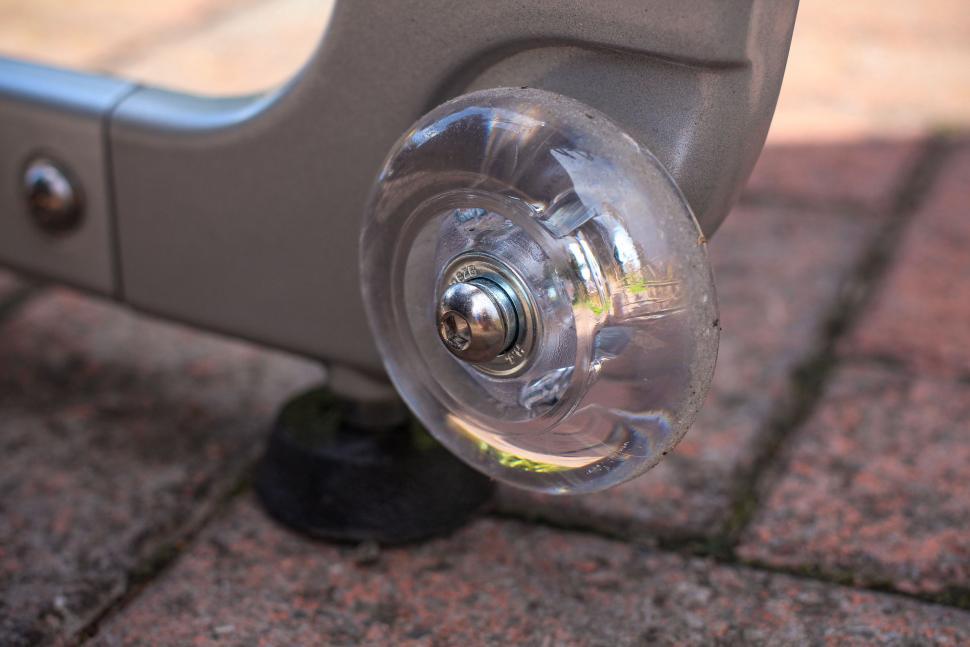
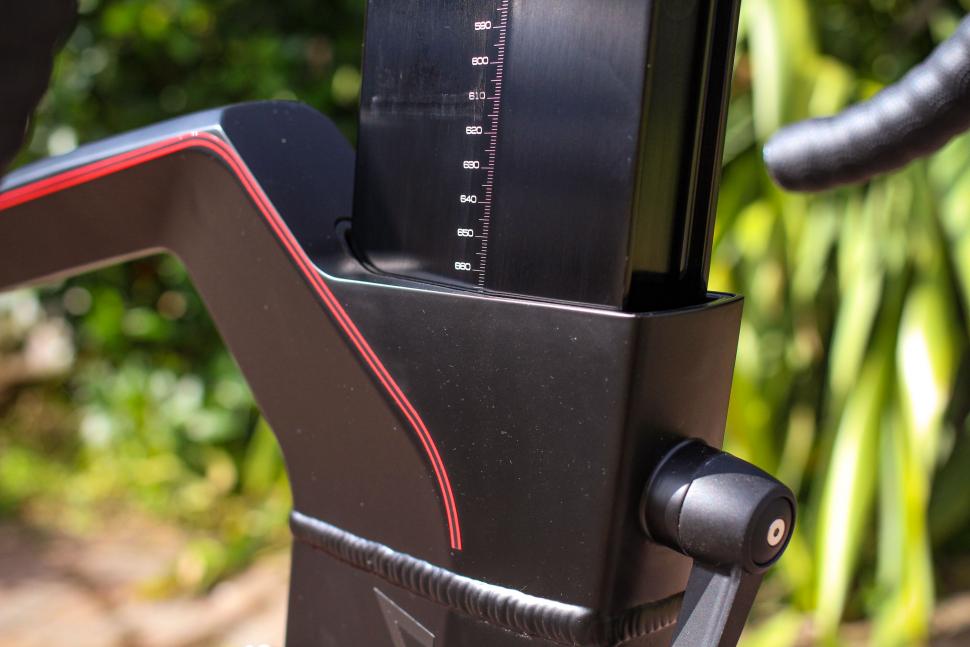
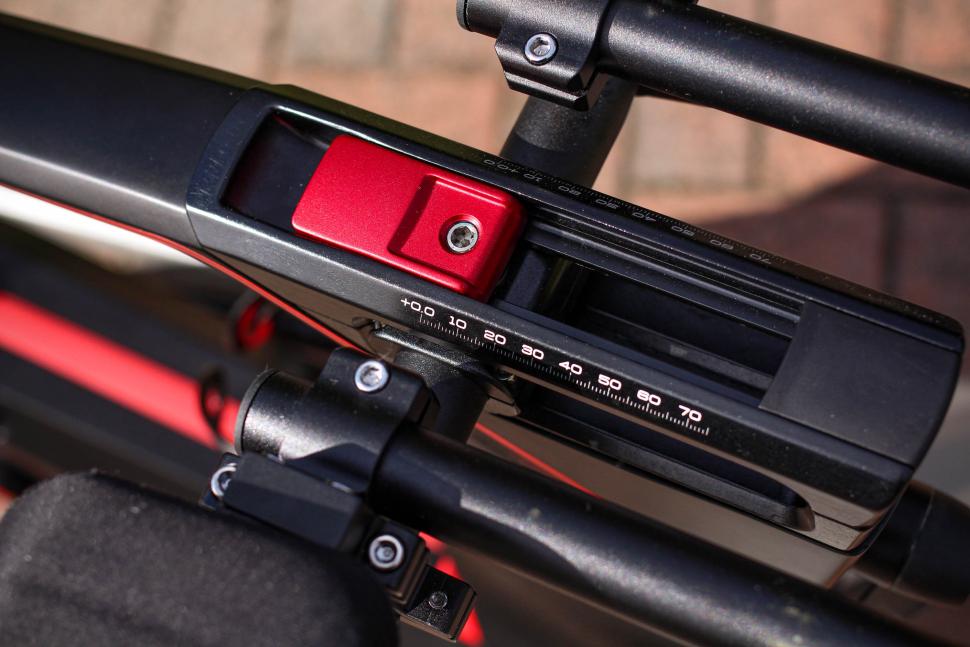
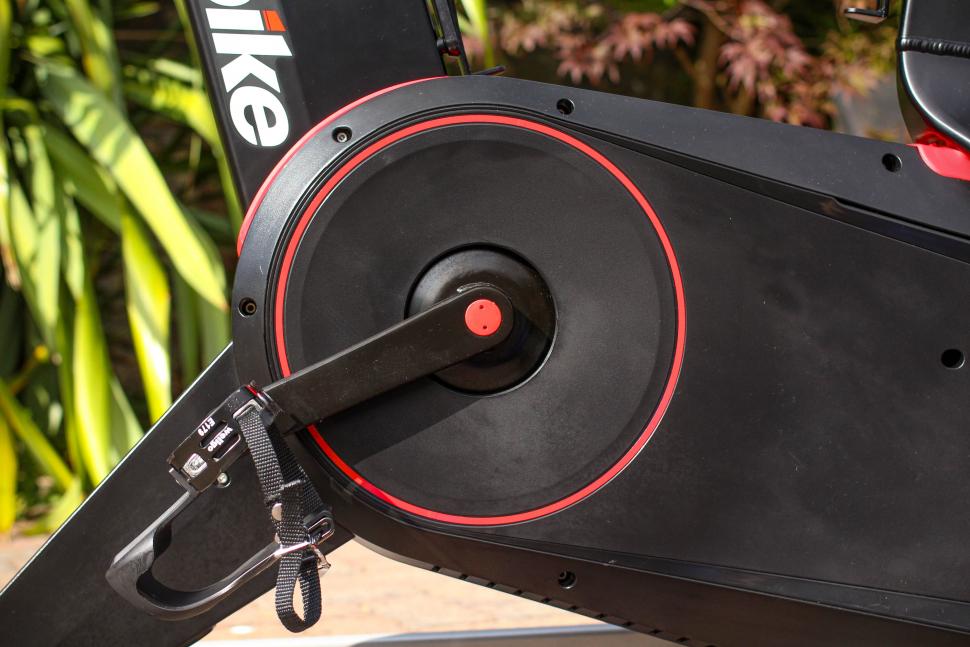
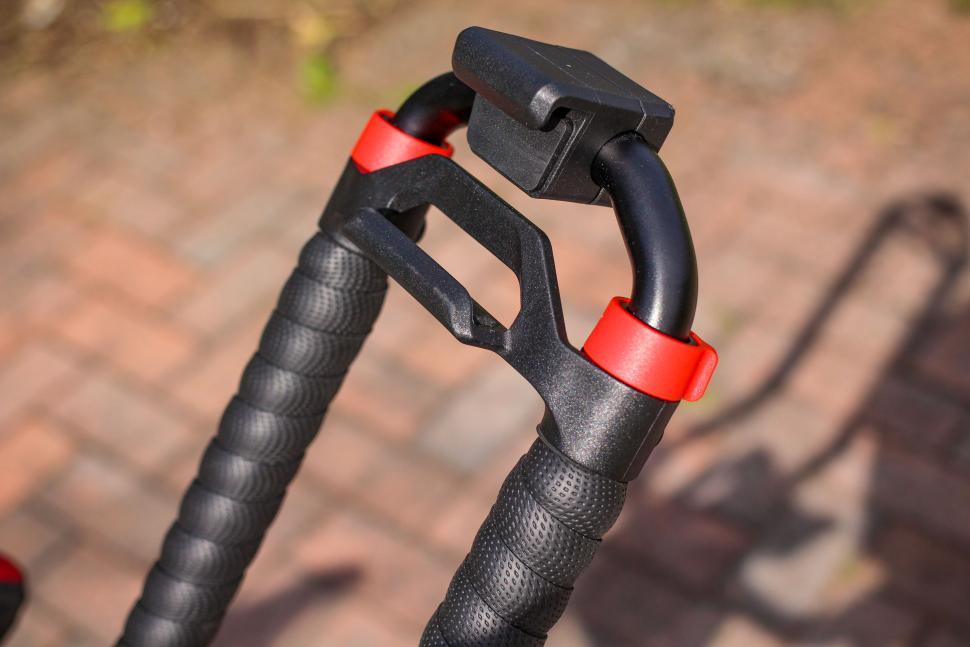

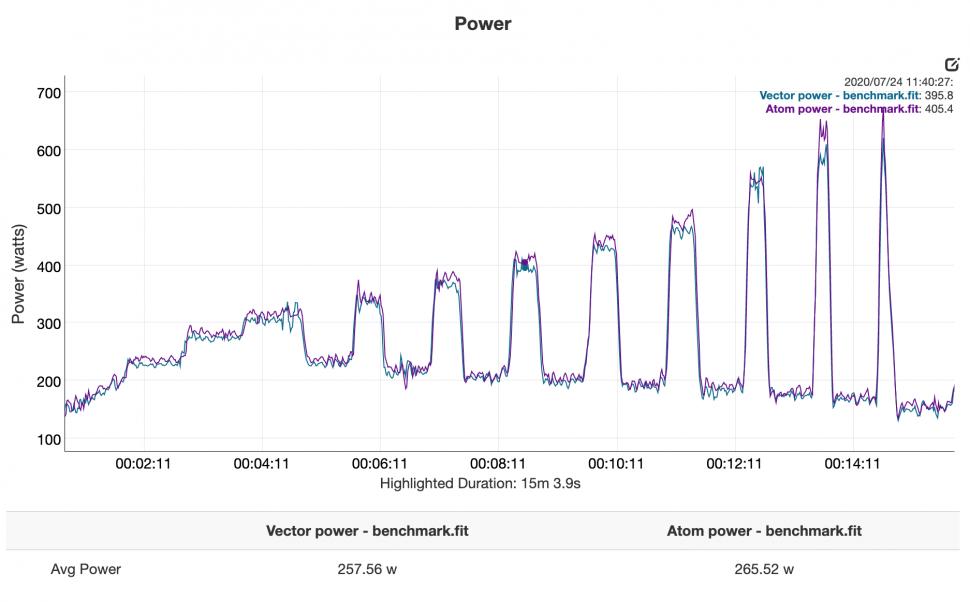
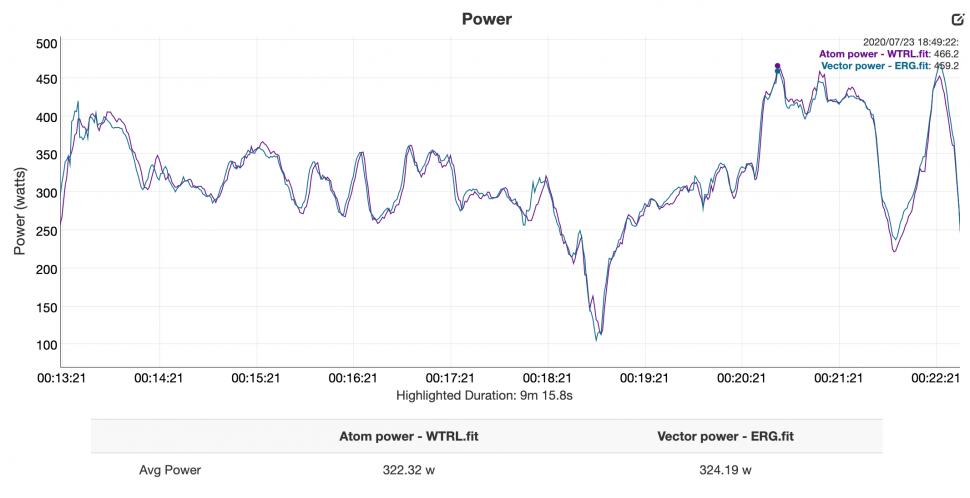
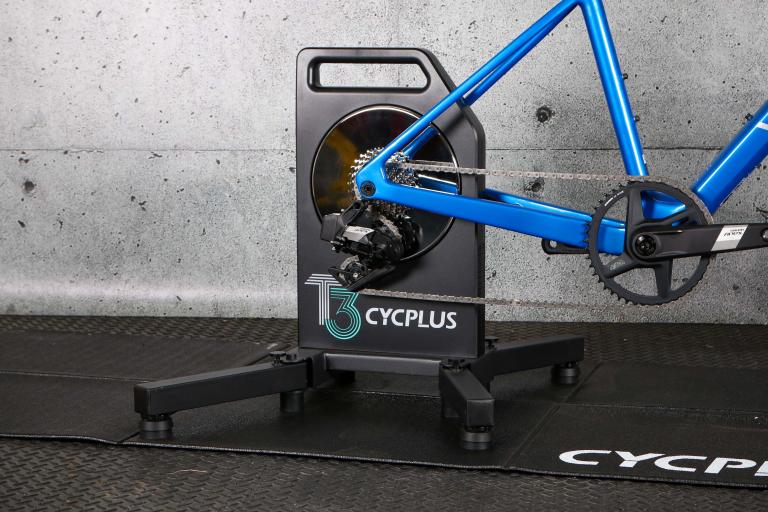
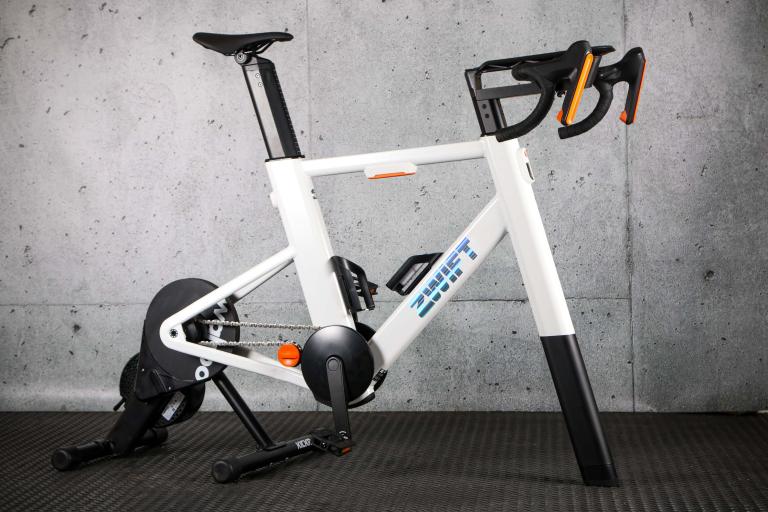

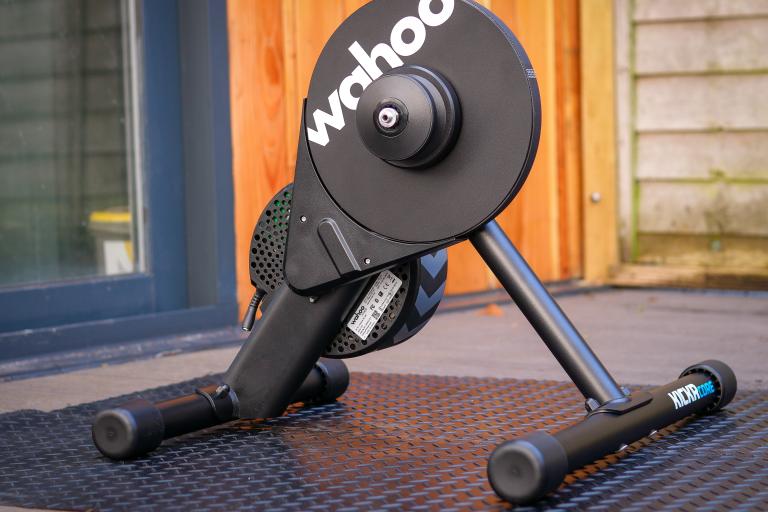
Add new comment
10 comments
Being stuck with 170mm cranks is a dealbreaker for me. I ride 165mm cranks on all my bikes and, even though 5mm is a tiny, I find the difference shorter cranks make is massive.
Note that the old price is still in the text of the article. Also it would be nice to know they have resolved all their "at launch" firmware issues.
There was a reduction to £1,749 for most of the summer - price goes back up and the review comes out!
Yes, but how aero is it?
Wattbike discount code below:
I searched high & low for a code & this one can be used, only £25 but it all helps.
If needed, copy & paste.
https://t.mention-me.email/lnk/AUcAAB5NWYMAAcokbIIAAHsEQ_8AAO87QCkAAAAAA...
If you buy one, just keep everything crossed that you never need to contact wattbike customer services...after weeks of trying I'm yet to be convinced its actually possible
What happens when you give it 'the beans'? I know it says 2500w max, but I have a Tacx Neo that says the same and it just can't handle sprints - any thing over about 1000w it just slips like crazy. Torn between risking a Neo 2T (which claims to fix the problem) or going to this. The old style Wattbike Pro has always served me well but I want something 'smart' for Zwift that I can also do sprint intervals on.
You are Carlton Kirby, and ICMFP.
Yeah it's good for sprints: rock solid platform and no slipping from the resistance unit.
You've got one of the buggy Neo's - contact Tacx and they'll probably replace it.